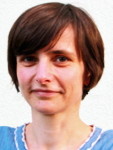Dr. Diana Schmidt-Pfister
Vita

Since 11/2016 Co-founder of the “PS: Institut für praxisnahe Sozialforschung”
Since 03/2008 Research Associate, Center of Excellence “Cultural Foundations of Integration,” University of Konstanz
07–08/2011 Summer Course “Film Production I”, Boston University
10/2010–07/2011 Visting Fellow, Programme on Science, Technology and Society, Harvard University
07–11/2007 Research Fellow, Institute for Intercultural and International Studies, University of Bremen
07/2006–06/2007 Research Associate, Research Centre for East European Studies, University of Bremen
01/2003–12/2006 PhD Research at the Institute of Governance, Public Policy and Social Research, Queen’s University Belfast, UK
Thesis: “Anti-corruption advocacy in Contemporary Russia: Civil Society Actors, Transnational Networks and the State“
1995–2002 Studies in Geography, Anthropology, Meteorology and Geology at the University of Cologne, Germany, and Simon Fraser University, Canada
Research Areas
Cultures, ethics and governance, Science Studies, social movements, Post-Communism, handicap and assisted communication
Function within the Center
Research associate (postdoc)
Research project “Kulturen der Wissens- und Wertevermittlung”
Abstract
Selected Publications
Books
(2012): Fighting Corruption in Eastern Europe. A Multilevel Perspective. Milton Park, Abingdon, Oxford: Routledge, (ed. with Holger Moroff).
(2010): Edited Volume/Special Issue: Schmidt-Pfister, Diana / Holger Moroff (Guest eds.). Anti-Corruption for Eastern Europe. Special Issue, Global Crime 11/2.
(2010): Transnational Advocacy on the Ground. Against Corruption in Russia?, Manchester: Manchester University Press.
(2010): International Anti-Corruption Regimes in Europe. Between Corruption, Integration, and Culture, Baden-Baden: Nomos (ed. with Sebastian Wolf).
Scientific Articles
(2017): Why do you publish? On the tensions between generating scientific knowledge and publication pressure. in: Aslib Journal of Information Management. 69 (5), 529-544 (with Nora Hangel).
(2016): Als RezipientInnen vergessen. Gebärdenlernmedien auch für Menschen mit geistiger Behinderung? in: Beate Ochsner / Robert Stock (Hrsg), senseAbility - Mediale Praktiken des Sehens und Hörens. Bielefeld: transcript, 323–346 (with Carola Julia Schneider).
(2015): Lautsprachunterstützende Gebärden in der UK: Kulturkapsel(n) und die beginnende Wirkung von Grenzobjekten, in: uk & forschung 4: 4–10.
(2012): Wettbewerb und Zusammenarbeit im universitären Forschungsalltag; Ambivalent und untrennbar, in: Die Hochschule, 182-198 (with Nora Hangel).
(2010): Anti-corruption movements, mechanisms, and machines - an introduction, in: Global Crime 11, 89-98 (with Holger Moroff).
(2009): Transnationale Zivilgesellschaft gegen Korruption in multinationalen Unternehmen?. In: Graeff, Peter (ed.), Der Korruptionsfall Siemens : Analysen und praxisnahe Folgerungen des wissenschaftlichen Arbeitskreises von Transparency International Deutschland. Baden-Baden, 77-101.
(2009): Transnational anti-corruption advocacy: A multi-level analysis of civic action in Russia, In: L. de Sousa, B. Hindess, P. Larmour (eds.), Governments, NGOs and Anti-Corruption: The New Integrity Warriors, London / New York: Routledge, 135-151.(2008): What kind of civil society in Russia?, In Stephen White (ed), Politics and Society in Putin’s Russia, New York: Palgrave Macmillan, 37-71.
(2008): What kind of civil society in Russia?, In Stephen White (ed), Politics and Society in Putin’s Russia, New York: Palgrave Macmillan, 37-71.
(2007): Anti-corruption – what do we know? Research on Anti-corruption in Eastern Europe, In: Political Studies Review, (5)2, 202-232.
(2007): Moldawien, Moldau, Moldova – Vielfalt der Erfahrungen, Ansprüche und Visionen, In Heidrun Hamersky, Heiko Pleines, Henning Schröder, Festschrift für Wolfgang Eichwede, Stuttgart: Ibidem, 215-222.
(2007): Anti-Corruption Advocacy in Russia? Local Civil Society Actors between International and Domestic Contexts, In: Sabine Fischer, Heiko Pleines, Henning Schröder (eds.), Movements, Migrants, Marginalisation. Challenges of Societal and Political Participation in Eastern Europe and the Enlarged EU, Stuttgart: Ibidem, 83-98.
(2006) Hard to Connect: Trans-national Networks, Non-Governmental Organisations and the Internet in Russia, In: S. Oates, D. Owen, R. Gibson (eds.), The Internet and Politics. Citizens, voters and activists, London/New York: Routledge, 163-182.
(mit Sergey Bondarenko, 2005): Good governance and anti-corruption mobilisation: do Russian NGOs have any say? In: Istemi Demirag (ed.), Corporate Social Responsibility, Accountability and Governance. Global Perspectives, Sheffield: Greenleaf Publishing, 291-311.
(2004): Transnational Cyber-Networking with Local NGOs. Societal Hardware and Software in Russia, In: Michael Gurstein and Victor Tischenko (eds.), Community Informatics and Community Networking Textbook. Prospects. Approaches. Instruments, Moscow: URSS, 85-98.
Practice-related Articles
(2015): Gebärden lehren und lernen heute, in: Gabriela Antener, Anja Blechschmidt, Karen Ling (Hrsg.), UK wird erwachsen. Initiativen in der Unterstützten Kommunikation. Karlsruhe: von Loeper Literaturverlag, 397–411.
(2015): Mit Gebärden und GoTalk NOW zur Syntax. Ein gelungenes Experiment im Gebärden-Unterricht der Regenbogen-Schule Konstanz in Kooperation mit der Universität Konstanz. in: Unterstützte Kommunikation, Nr. 4: 26–30 (mit Monika Dubbins und Norbert Rahm).
(2016): Keine Angst vor mehr Gebärden. Ein Kommentar, der zu mehr Freude an Gebärden in der UK motivieren möchte. in: Unterstütze Kommunikation, Nr. 2: 14–19.
Teaching and Learning Media
(2017): Bitte, Mammi, hol mich ab. Musikvideo mit Deutscher Gebärdensprache. (mit KiKuZ). online
(in production) Film "Mit Guk zur Sprache" (mit Carola Julia Schneider und Etta Wilken).
(2016): Film "Coole Gebärden lernen." (mit Julia Münzinger und KiKuZ).
(2016): Film "Ein Tag in Konstanz." (mit Carola Julia Schneider und KiKuZ). https://vimeo.com/158715406 | https://vimeo.com/177047308.
(2015, 2016): Gebärden-Lernapplikation „24 Gebärden - mit Max und Eni durch den Advent“.
Contact
phone +49(0)7531-88-5612
e-mail diana.schmidt-pfister[at]uni-konstanz.de
Room Y 202
University of Konstanz